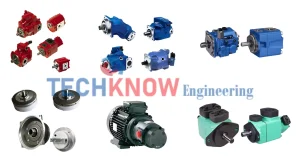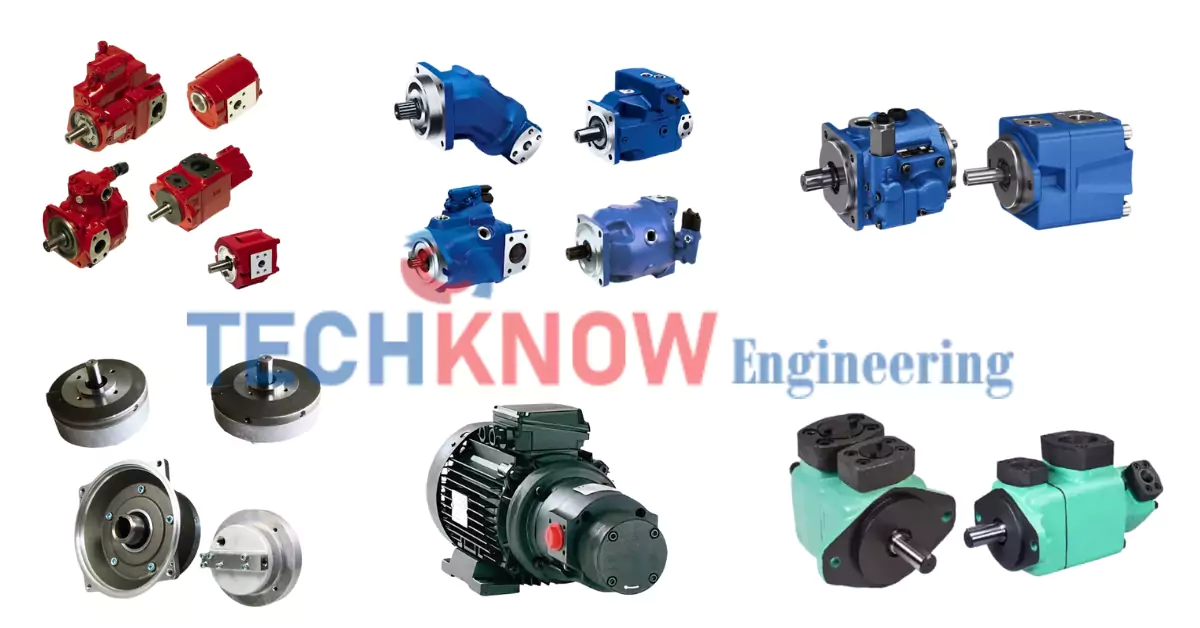Understanding the Principle of Hydraulic Pumps and Their Importance
Hydraulic Pumps are the unsung heroes of countless industries, powering some of the most essential machinery and systems in the modern world. From construction equipment to automobiles, hydraulic pumps are key players in delivering reliable and efficient fluid power. But have you ever wondered how they work, what drives their functionality, and why they’re indispensable across so many fields?
We will explain the foundational principle of hydraulic pumps, explore their various types, and highlight their critical applications. Whether you’re an engineer, a business owner, or simply curious about hydraulic systems, this guide from Techknow Engineering Enterprise is your complete resource.
Introduction to Hydraulic Pumps
Hydraulic pumps are integral to hydraulic systems, which are used to transmit power via pressurized fluid. Without a hydraulic pump, there would be no fluid flow, which means the entire system would fail to function. These pumps are responsible for converting mechanical energy into hydraulic energy by creating fluid flow and pressure. The fluid is then used to perform a wide range of actions, such as lifting, pushing, or rotating. Whether in massive construction cranes or compact automotive braking systems, hydraulic pumps are the heart of fluid power.
The Basic Principle of Hydraulic Pumps
At the core of hydraulic pumps lies Pascal’s Law, which states that pressure applied to a confined fluid is transmitted equally in all directions. This principle forms the foundation of hydraulic technology. Hydraulic pumps work by displacing fluid from an inlet to an outlet, creating a difference in pressure that generates power.
When a hydraulic pump activates, it draws fluid from a reservoir through the inlet port. Then, it pressurizes this fluid and delivers it to an outlet port, where it flows to other components of the hydraulic system, such as cylinders or motors. The force exerted by the fluid can be finely controlled, allowing hydraulic systems to carry out precise, powerful operations.
Put simply, hydraulic pumps transform mechanical force into hydraulic energy, enabling industries to do more with less effort.
Types of Hydraulic Pumps
Hydraulic pumps are not “one size fits all.” Instead, there are several different types of hydraulic pumps, each suited to specific applications and requirements. Here’s a closer look at the main types:
1. Gear Pumps
Gear pumps are one of the simplest and most common hydraulic pumps. They use the meshing of gears to pump fluid. These pumps are cost-effective, compact, and durable, making them ideal for low-pressure applications.
- Best suited for: Automotive hydraulics and agricultural machines.
2. Piston Pumps
Piston pumps are highly efficient and versatile. They use a series of reciprocating pistons to create fluid flow, offering excellent control over pressure and flow rate.
- Types of piston pumps:
-
- Axial Piston Pumps: Best for compact spaces with high-pressure needs.
- Radial Piston Pumps: Known for their reliability in industrial applications.
- Best suited for: Aerospace systems, high-performance industrial machinery.
3. Vane Pumps
Vane pumps use rotating vanes to move fluid, ensuring smooth and consistent output. These pumps are quieter than other types and commonly used in applications where noise is a concern.
- Best suited for: Automotive power steering systems, plastic molding machines.
4. Gerotor Pumps
Gerotor pumps are internal gear pumps with a simple and compact design. These are perfect for applications that require a low volume of fluid but high efficiency.
- Best suited for: Small automotive systems and lubrication tasks.
Components of Hydraulic Pumps
Hydraulic pumps may vary in design, but their basic components are quite similar.
- Inlet and Outlet Ports: Allow fluid to enter and exit the pump. These ports are crucial for maintaining efficient fluid flow.
- Seals and Bearings: Prevent fluid leaks and support smooth, frictionless operation.
- Drive Shaft: Transfers mechanical power from the driving source to the pumping mechanism.
High-quality hydraulic pumps, such as Rexroth hydraulic pumps, use these components to ensure top-notch performance and durability.
Applications of Hydraulic Pumps
Hydraulic pumps play a vital role in various industries. Here are some key areas where hydraulic technologies shine:
- Automotive Industry: Hydraulic pumps power steering systems, braking systems, and transmission controls, ensuring safe and smooth operation.
- Aerospace Industry: Aircraft rely on hydraulic systems for landing gear, wing flaps, and braking systems. Piston hydraulic pumps are especially crucial in aerospace applications.
- Construction Equipment: Heavy machinery like excavators, bulldozers, and cranes use hydraulic pumps to handle extreme loads and complex movements with precision and reliability.
These examples illustrate how integral hydraulic pumps are to modern machinery and operations.
Maintenance and Troubleshooting
Like any mechanical system, hydraulic pumps require regular maintenance to prevent unexpected breakdowns. Here are some pro tips for maintaining and troubleshooting your hydraulic pumps:
- Common Issues
Look out for problems like fluid leaks, reduced pressure output, and unusual noise. These are often indicators of worn seals, damaged bearings, or contamination in the hydraulic fluid.
- Maintenance Tips
-
- Regularly check and replace hydraulic fluid to prevent contamination.
- Inspect seals and bearings for wear and tear.
- Monitor pressure levels to ensure the pump is operating within its specifications.
Routine maintenance will not only extend the life of your hydraulic pump but also ensure optimal performance. Techknow Engineering Enterprise offers specialized services to help keep your systems running smoothly.
Innovating the Future of Hydraulic Pumps
The principle of hydraulic pumps might be rooted in simplicity, but their applications and innovations are anything but. With advancements in materials, design, and automation, the future of hydraulic pumps is brighter than ever. New systems are increasingly energy-efficient, eco-friendly, and smarter, offering tools like real-time diagnostics and predictive maintenance.
For those looking to explore hydraulic pumps further, stay connected with Techknow Engineering Enterprise to access expert advice and high-quality products. Whether you need general information, a “types of hydraulic pumps PDF,” or guidance on “piston hydraulic pumps,” we’ve got you covered.
Hydraulic Pumps

By learning about hydraulic pumps and their role in modern systems, you're better prepared to harness their power for your projects and enterprises. Engage with us at Techknow Engineering Enterprise and transform the way you think about fluid power!
Product Brand: Techknow Engineering Enterprise
Product In-Stock: InStock
5

